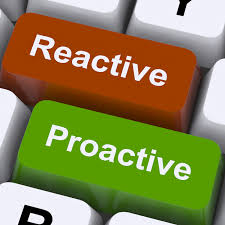AnxietyPath is a safe community environment supported by professional counselors. We are a free self help destination to receive support and guidance for recovery from anxiety and phobias
Emotional Drifting Allows Anxiety To Grow
 When we are dealing with anxiety disorders, we feel as though we have lost control of our own life. We allow our emotions to direct us through the day and we end up drifting aimlessly with no direction. This compounds the suffering. When emotions are allowed to run unchecked, this creates the perfect environment for anxiety to grow. This is known as emotional drifting.
When we are dealing with anxiety disorders, we feel as though we have lost control of our own life. We allow our emotions to direct us through the day and we end up drifting aimlessly with no direction. This compounds the suffering. When emotions are allowed to run unchecked, this creates the perfect environment for anxiety to grow. This is known as emotional drifting.
Recovery from anxiety disorders requires us to become empowered. We need to know that we can care for ourselves, we are not helpless and regardless how bad the anxiety makes us feel, we will be ok.
In order to do this, we need to live life intellectually. When we allow anxiety to direct our lives we are giving up on intellectual navigation throughout the day. We need to stop emotional drifting and change our behavior.
To demonstrate emotional drifting, I like the analogy of a leaf floating down a river. The leaf has no input on what happens to it, where it goes, how fast, it just floats and does whatever the river directs it to. We are the leaf and our emotions are the river.
To change this, we have to take a stand against the flowing current. And we have to make a decision as to what happens to us, where we go and what we do. And we need to do this intellectually and not emotionally.
The best way to start this is by creating a schedule to manage your time. I always say, “manage your time, before your time manages you!” Create a schedule to manage your free time when you are home. When you get up, your morning routine, after school/work, in the evening, before bed.
The schedule needs to include the things that you know you need to do for yourself. Things such as drinking water, eating healthy meals, exercise, any and all things you need to do to properly care for yourself. Allow plenty of time in between the tasks. But try not to allow for large amounts of time to go without something planned. Even drinking a glass of water needs to be planned for multiple times per day.
Being an active participant in your own life is an important step towards recovery. This slows down the emotionally driven behavior and starts to replace it with non-emotionally driven behavior, which opens up an opportunity for behavior change to occur.
Imagine a path cut through a grass field. After many months or years of walking down the same path, there is a deep rut cut into the ground. If we travel down this path without thinking we would naturally gravitate to the center of this deep rut. However, to forge a new path, we would have to intentionally change our path and walk elsewhere. This is exactly what “intellectual thinking” does for us. It gives us control over our behavior (even temporarily at first) and allows us to start to direct our behavior and ultimately change it.
Therefore implementing a schedule and living life from an intellectual point of view, we can empower ourselves. And this creates a profound change in our perception of the relationship between us and our anxiety disorders.
Fear To Fearless
Categories
© 2020 AnxietyPath Powered by G SOUL INC